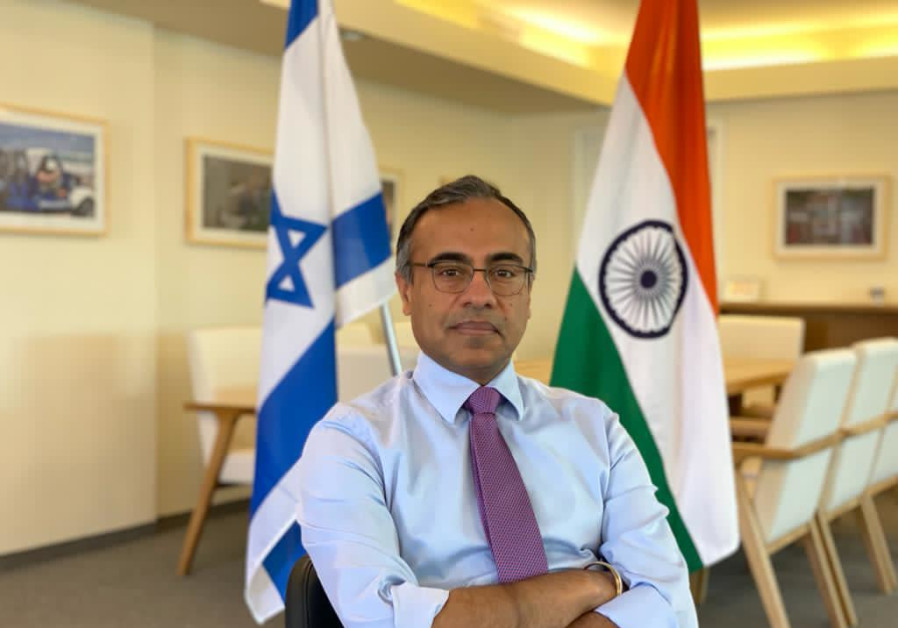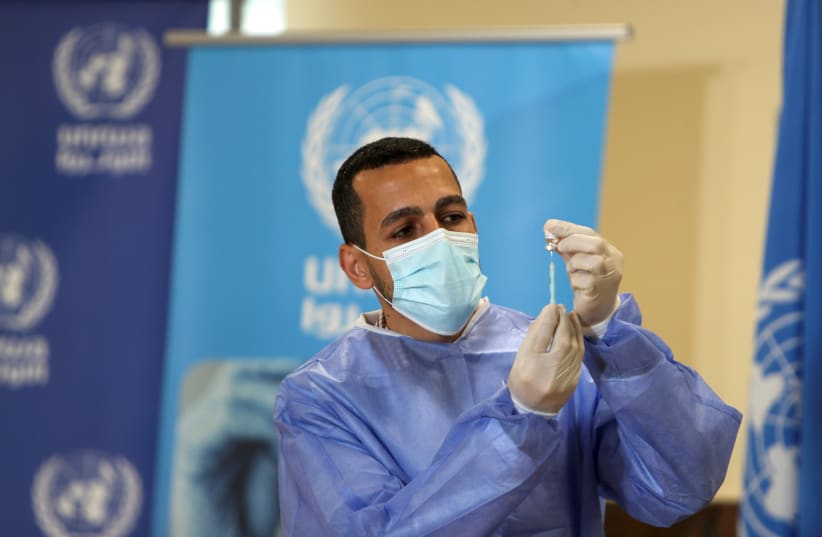The Palestinian Authority is slated to receive 25,000 doses of the Oxford-AstraZeneca COVID-19 vaccine from India as it scrambles to inoculate its population amid a global shortage.
The PA has received some 32,000 doses for the West Bank and Gaza Strip. Its fledgling program has been plagued by a lack of funds and an absence of available vaccines.
India is one of the only countries with a manufacturing and export program that have made vaccines available to the Middle East.
“We are the world’s largest manufacturer of vaccines,” Indian Ambassador to Israel Sanjeev Singla told The Jerusalem Post Tuesday.

India has exported almost 41 million doses globally, including 10.65 million, or 26%, to the Middle East.
Some 200,000 of the doses were grants or gifts, such as to Oman or Bahrain, while the rest were sold to Morocco, Algeria, Egypt, Kuwait, the United Arab Emirates and Saudi Arabia.
Only the US has reported more COVID-19 cases than India, which has vaccinated 14 million healthcare and frontline workers since starting its immunization program in mid-January. It wants to inoculate 300 million of its 1.35 billion people by August.
It is also exporting vaccines.
“We have this long-standing civilization philosophy that even if we are a developing country, however small the pie we have, we would always give a share of that to other countries, especially if they happen to be developing countries,” Singla said.
“As part of that endeavor, as a pharmacy to the world, we have given more than 40 million doses [of the Oxford-AstraZeneca vaccine] to 38 different countries, and deliveries to another 35 countries are in the pipeline,” he added.
The 25,000 vaccines the PA has purchased come from the Serum Institute of India, which is the largest global manufacturer of vaccines. No date has been set for their arrival.
Israel has relied on vaccines from US-based Pfizer and Moderna. It was able to purchase vaccines early and has already administered more than 8.1 million doses, or more than 50% of the population with at least one dose and 37% with two doses.
By contrast, the PA has barely begun its vaccination program and has not secured enough doses for the five million Palestinians in the West Bank and the Gaza Strip.
It is slated to receive enough doses for one million people from the UN-affiliated global program Gavi, the Vaccination Alliance, which donates vaccines to poor and middle-income countries.
India has traditionally been one of the biggest contributors to Gavi, Singla said.
Initial shipments from Gavi are scheduled to arrive in March, but it will take nine months to complete delivery of all the doses.
Israel is scheduled to start vaccinating 120,000 Palestinian workers next week and has provided the PA with 2,000 vaccines, with a pledge of an additional 3,000.
Israel is inoculating the Palestinians with the Moderna vaccines it received nearly two months ago and that have remained in storage since then.
The PA has also received 10,000 doses of the Russian Sputnik V vaccine.
The United Arab Emirates has sent 20,000 doses to Gaza.
India understands the importance of combating COVID-19 by ensuring that people throughout the world can be inoculated against the virus, and it has a large role to play in that endeavor, Singla told the Post.
“Vaccines for COVID-19 would not have any meaning if they are not supplied in bulk to the rest of the world,” he said. “For that, huge manufacturing capacity is needed, something we have in India.”
India is in the process of developing additional vaccines, Singla said.
“There are two indigenous vaccines in India that are in Phase 3 of their trials,” he said. “There are others in Phase 2.”
“In addition, in keeping with our philosophical approach, we have also given a call at the World Trade Organization for temporary waiver of intellectual-property rights for COVID-19 vaccines in the greater interest of humanity in view of the unprecedented nature of this pandemic,” Singla said.
Reuters contributed to this report.
